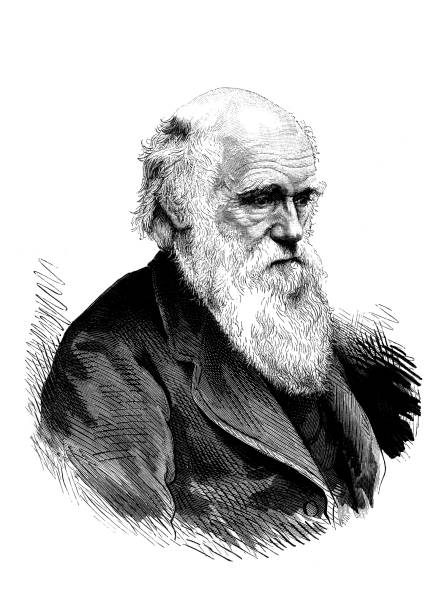MODULE 5
WHAT IF
READING AND SPEAKING
Some people like reading, others really don't like it. Whatever your feelings towards reading, it does really help improve your knowledge of the English (or any) language and helps you create a bigger vocabulary.
Soon you have to do your exams and one of them is a conversation. In a conversation you have to answer questions and give your opinion on things.
Giving your opinion in English can be quite difficult if you have to think on the spot. We can work on this, by giving short statements or presentations, Forming your own opinion and being able to express that is very important!

The Darwin Awards:
Charles Robert Darwin (1809-1882) was an English biologist, naturalist and geologist. He is most famous for his contributions to evolutionary biology. Darwin was the one that came up with natural selection; the theory that everything adepts to the situation around them, or if not, the species will die out by, you guessed it: natural selection.
In 1993 some people came up with the idea to share stories about other people that found their own way of natural selection. People that did stupid things, made stupid mistakes and by dying or sterilizing themselves they cannot procreate and thus die out. Obviously Darwin and his descendants have nothing to do with this tongue-in-cheek honor given to people who make stupid decisions, but it does show you that action almost always have consequences.
If you want to practice your reading and listening, but you find it difficult to concentrate for 90 minutes at the time, try doing some shorter exercises first.
TRANSLATING EXERCISE:
Vertaal de tekst en voer het gesprek met een klasgenoot.
Patiënt: Goedemorgen! Ik ben hier voor mijn tandartscontrole.
Tandartsassistent: Goedemorgen! Fijn je te zien. Hoe voel je je over je mondgezondheid?
Patiënt: Ik probeer voor mijn tanden te zorgen, maar er is tegen mij gezegd dat ik wat tandsteen heb. Wat kan ik doen om te voorkomen dat het terugkomt?
Tandartsassistent: Dat is een goede vraag! Tandsteen ontstaat wanneer plaque verhardt op je tanden. Om het te voorkomen, moet je een goede mondhygiëne aanhouden.
Patiënt Wat moet ik precies doen?
Tandartsassistent: Zorg er eerst voor dat je minstens twee keer per dag je tanden poetst met fluoride tandpasta. Gebruik een tandenborstel met zachte haren en vervang deze elke drie maanden.
Patiënt: Oké, dat kan ik doen. Wat is er met flossen?
Tandartsassistent: Flossen is heel belangrijk! Je moet minstens één keer per dag flossen om voedselresten en plaque tussen je tanden te verwijderen waar je tandenborstel niet bij kan.
Patiënt: Begrepen. Is er nog iets anders waar ik op moet letten?
Tandartsassistent: Ja! Probeer suikerrijke voedingsmiddelen en dranken te beperken, omdat ze kunnen bijdragen aan plaquevorming. Drink ook veel water om voedselresten weg te spoelen.
Patiënt Dat klinkt haalbaar. Hoe vaak moet ik voor een controle komen?
Tandartsassistent: Idealiter moet je elke zes maanden de tandarts bezoeken voor reinigingen en controles. Dit helpt om eventuele problemen vroegtijdig op te sporen.
Patiënt: Bedankt voor het advies! Ik zal ervoor zorgen dat ik deze tips volg.
Tandartsassistent: Graag gedaan! Met goede zorg kun je tandsteen op afstand houden. Tot de volgende afspraak!

SPEAKING
One of the grammar topics that is very useful to give opinions or describe actions and consequenes are the conditionals.
There are 4 different conditionals; the zero, first, second and third conditional. The explanation can also be found in the grammar part of this website.
EXERCISE
Everyone is allowed their opinion, but it is very important to be able to explain your opinion. With this exercise we are going to practice giving opinions and explaining why you think or feel that way.
What is worse?
1. Walking in the rain or through a flooded street?
2. Too much to eat or not enough?
3. Too much parental control or not enough?
4. Too many rules or not enough?
5. Being too tall or too short?
6. Being too fat or too thin?
7. Too much ambition or too little?
8. Deny yourself everything or deny yourself nothing?
9. Too much or too little self-control?
10. Telling a secret or keeping a secret?
11. Eating beetles or snakes?
12. Getting too much physical exercise or not enough?
13. Controlling your temper too much or not enough?
14. Staying forever single or being divorced?
15. Not being able to have children or having too many?
16. Living within your income or beyond your means?
17. Living in the city centre or far out in the suburbs?